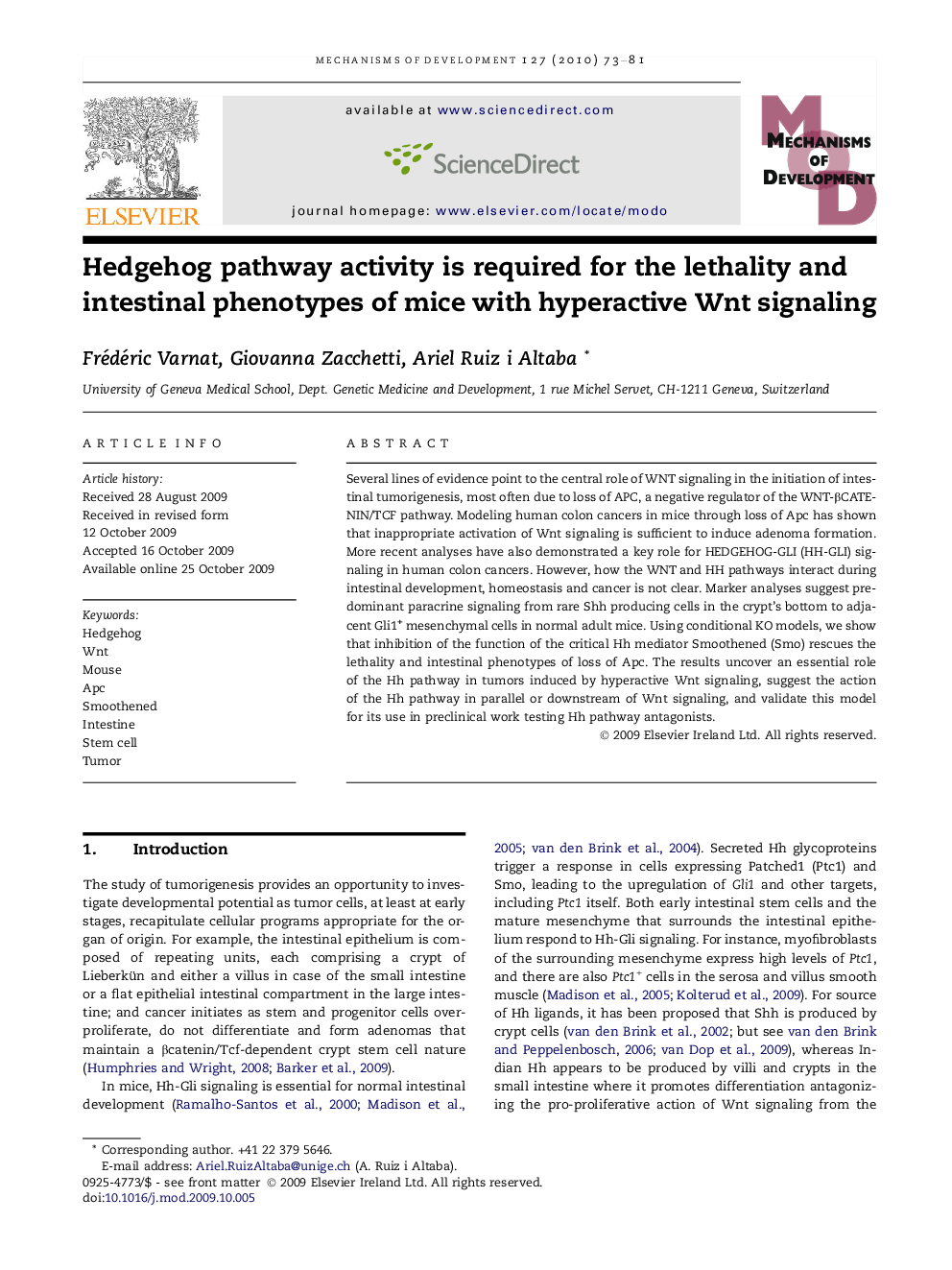| Article ID | Journal | Published Year | Pages | File Type |
|---|---|---|---|---|
| 2195208 | Mechanisms of Development | 2010 | 9 Pages |
Several lines of evidence point to the central role of WNT signaling in the initiation of intestinal tumorigenesis, most often due to loss of APC, a negative regulator of the WNT-βCATENIN/TCF pathway. Modeling human colon cancers in mice through loss of Apc has shown that inappropriate activation of Wnt signaling is sufficient to induce adenoma formation. More recent analyses have also demonstrated a key role for HEDGEHOG-GLI (HH-GLI) signaling in human colon cancers. However, how the WNT and HH pathways interact during intestinal development, homeostasis and cancer is not clear. Marker analyses suggest predominant paracrine signaling from rare Shh producing cells in the crypt’s bottom to adjacent Gli1+ mesenchymal cells in normal adult mice. Using conditional KO models, we show that inhibition of the function of the critical Hh mediator Smoothened (Smo) rescues the lethality and intestinal phenotypes of loss of Apc. The results uncover an essential role of the Hh pathway in tumors induced by hyperactive Wnt signaling, suggest the action of the Hh pathway in parallel or downstream of Wnt signaling, and validate this model for its use in preclinical work testing Hh pathway antagonists.
